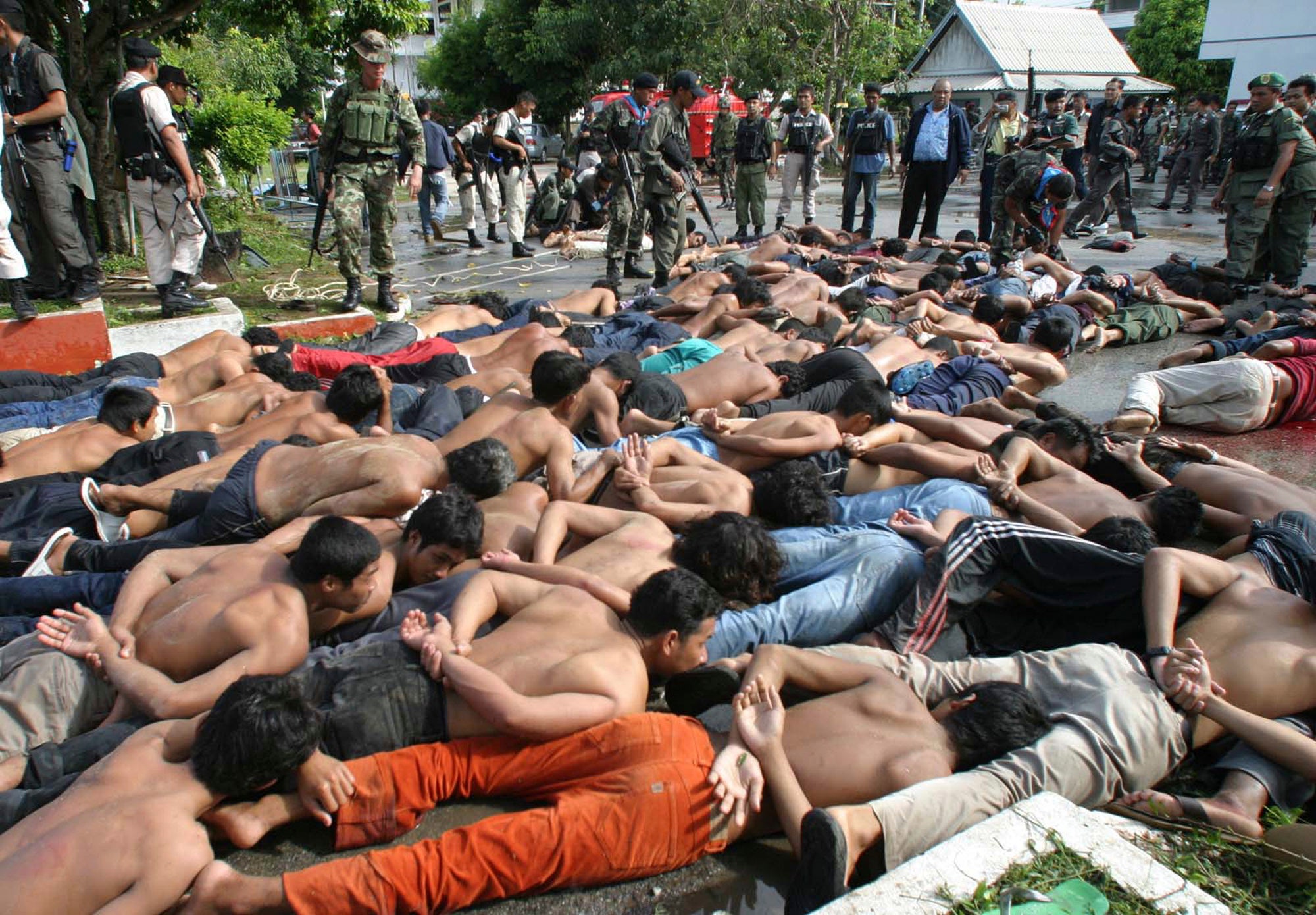Thailand will indict ex-security personnel over the deaths of 78 Muslim protesters in 2004
Prosecutors in Thailand say eight former security personnel accused of responsibility for the deaths of 78 Muslim men arrested 20 years ago will be indicted on murder charges

Your support helps us to tell the story
From reproductive rights to climate change to Big Tech, The Independent is on the ground when the story is developing. Whether it's investigating the financials of Elon Musk's pro-Trump PAC or producing our latest documentary, 'The A Word', which shines a light on the American women fighting for reproductive rights, we know how important it is to parse out the facts from the messaging.
At such a critical moment in US history, we need reporters on the ground. Your donation allows us to keep sending journalists to speak to both sides of the story.
The Independent is trusted by Americans across the entire political spectrum. And unlike many other quality news outlets, we choose not to lock Americans out of our reporting and analysis with paywalls. We believe quality journalism should be available to everyone, paid for by those who can afford it.
Your support makes all the difference.Eight former state security personnel accused of responsibility for the deaths of 78 Muslim protesters who were arrested in southern Thailand in 2004 will be indicted on murder charges, the prosecutor’s office announced Wednesday.
The case earned special notoriety because the manner in which the victims died. They were arrested, had their hands tied, and were loaded onto trucks, stacked like firewood. By the time the vehicles reached an army base where they were taken to be detained, 78 had died of crushing or suffocation.
The long-delayed legal action in connection with what is known as the Tak Bai massacre came just over a month before the statute of limitations expires on the case. Even though the suspects have been indicted, the charges can still expire if none of those named appears in court before an Oct. 25 deadline.
The deaths occurred shortly after a Muslim separatist insurgency erupted in Thailand’s southernmost provinces of Narathiwat, Pattani and Yala, the only ones with Muslim majorities in the Buddhist-dominated nation.
Muslim residents have long complained they are treated like second-class citizens in Thailand, and separatist movements have been periodically active for decades. Heavy-handed crackdowns have fueled the discontent. Fighting continues to this day, but at a lower level.
On Oct. 25, 2004, thousands of protesters gathered at the police station in Narathiwat’s Tak Bai district to demand the immediate release of six Muslim men who had been detained several days earlier. The detainees, members of an official village defense force, were accused by police of handing over weapons to insurgents, but reporting them stolen.
After the protest turned violent, around 1,300 protesters were rounded up by soldiers and forced to lie on top of each other in 25 trucks before they were transported to a military camp in neighboring Pattani province, two hours’ drive away. When they reached the destination, officials reported 78 people had died. Autopsy results revealed suffocation was the cause of death. Seven others had been shot dead during the protest.
The officials facing murder charges are mostly the drivers of the trucks, but also the commander of the 5th Infantry Division, Chalermchai Wirunphet, said Prayuth Bejraguna, a spokesperson for the Office of the Attorney General.
“Although the eight suspects … did not wish the victims to have died, getting only 25 trucks to transport more than 1,000 protesters is too crowded to be an appropriate way to transport people,” Prayuth told a news conference. “The defendants’ action could be expected to result in the victims being suffocated to death.”
The case does not involve the seven shot dead during the protest.
In a related legal proceeding in April, the victims’ families filed a lawsuit accusing seven soldiers and officials of murder, attempted murder and unlawful detention. One of those indicted was Pisal Wattanawongkiri, commander of the 4th Army Region at the time of the incident and now a lawmaker for the ruling Pheu Thai Party, who enjoys parliamentary immunity from arrest.
The Narathiwat Criminal Court has already accepted that case but none of the accused have yet shown up to hear the charges, which would likewise expire on Oct. 25 under the statute of limitations.
Prayuth said the Attorney General's Office received the case from police investigators in April this year, and had done their best to expedite the process, resulting in the indictment decision last week. When asked why there was such a delay before the case was handed to them, Prayuth declined to comment, saying it was a police affair.